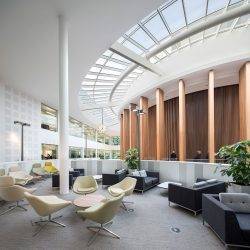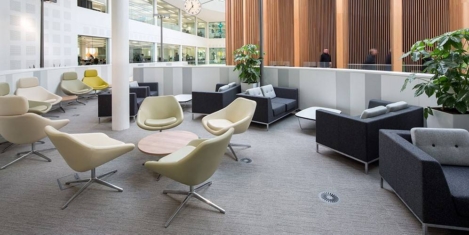January 30, 2017
One Public Sector Estate programme now includes around three quarters of UK local authorities 0
 The UK Government’s groundbreaking One Public Sector Estate (OPE) project now includes around three quarters of the country’s local authorities following the announcement that a further 79 councils will join the programme. One Public Estate is a national programme jointly run by the Cabinet Office Government Property Unit and the Local Government Association (LGA). It supports joint working across central and local government to release land and property and boost economic growth, regeneration and integrated public services. It encourages public sector partners to share buildings, transform services, reduce running costs, and release surplus and under-used land for development. Partnerships joining the programme will receive funding and practical and technical support to unblock barriers and deliver ambitious ‘transformational projects’.
The UK Government’s groundbreaking One Public Sector Estate (OPE) project now includes around three quarters of the country’s local authorities following the announcement that a further 79 councils will join the programme. One Public Estate is a national programme jointly run by the Cabinet Office Government Property Unit and the Local Government Association (LGA). It supports joint working across central and local government to release land and property and boost economic growth, regeneration and integrated public services. It encourages public sector partners to share buildings, transform services, reduce running costs, and release surplus and under-used land for development. Partnerships joining the programme will receive funding and practical and technical support to unblock barriers and deliver ambitious ‘transformational projects’.

















 Amos Tversky and Daniel Kahneman introduced the concept of Loss Aversion in 1984, highlighting people’s tendency to strongly prefer avoiding losses to acquiring gains. Most studies suggest that losses are twice as powerful, psychologically, as gains. Lose £100 and we will feel a remorse that easily outweighs winning £100. In a similar fashion we find it very hard to see future positives when confronted with short term loses. We understand easily what we have lost but cannot imagine what there is to be gained. Furthermore, as Frederic Bastiat wrote in an 1850 paper, “That Which is Seen, and That Which is Not Seen”, man has a tendency to “pursue a small present good, which will be followed by a great evil to come, rather than a great good to come, at the risk of a small present evil”. Put these together and it is no wonder that, by and large, the future of work, corporate real estate and the workplace is so widely misunderstood.
Amos Tversky and Daniel Kahneman introduced the concept of Loss Aversion in 1984, highlighting people’s tendency to strongly prefer avoiding losses to acquiring gains. Most studies suggest that losses are twice as powerful, psychologically, as gains. Lose £100 and we will feel a remorse that easily outweighs winning £100. In a similar fashion we find it very hard to see future positives when confronted with short term loses. We understand easily what we have lost but cannot imagine what there is to be gained. Furthermore, as Frederic Bastiat wrote in an 1850 paper, “That Which is Seen, and That Which is Not Seen”, man has a tendency to “pursue a small present good, which will be followed by a great evil to come, rather than a great good to come, at the risk of a small present evil”. Put these together and it is no wonder that, by and large, the future of work, corporate real estate and the workplace is so widely misunderstood.















January 20, 2017
The facts about sit stand work are already lost in the stream of narrative 0
by Mark Eltringham • Comment, Knowledge, Wellbeing, Workplace design
(more…)